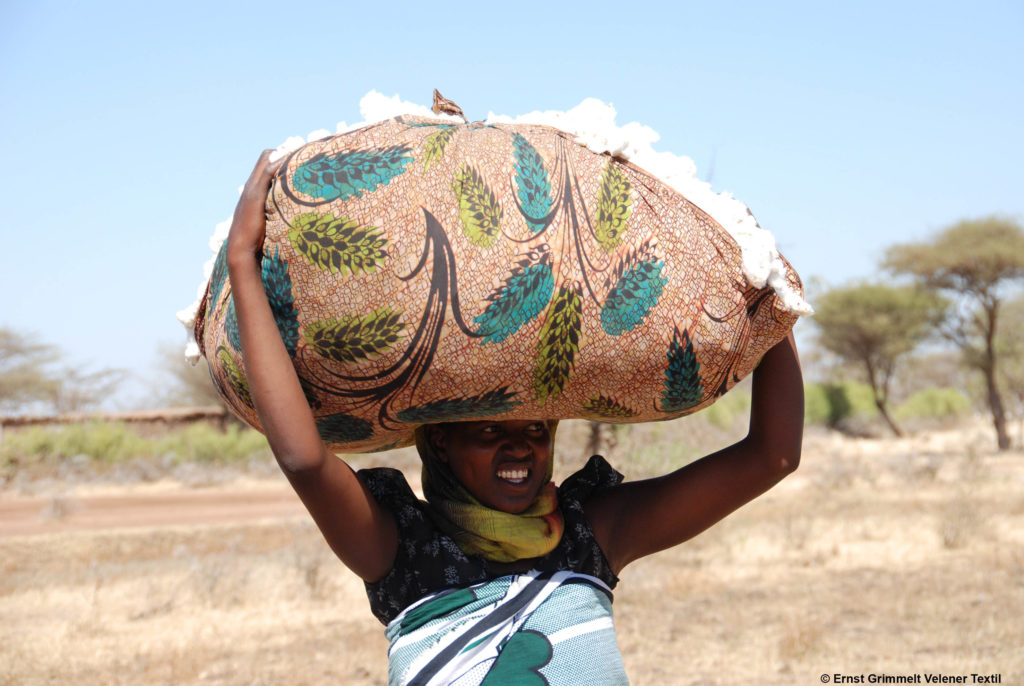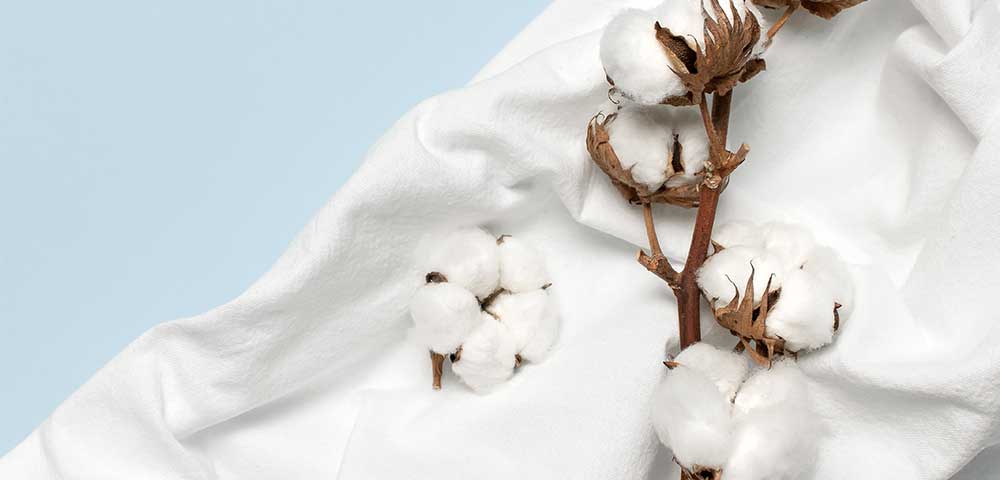With its attributes ‘renewable’, ‘recyclable’ and ‘biodegradable’, the Bremen Cotton Exchange sees cotton as one of the most sustainable raw materials on the planet from an ecological, social and economic point of view.
Depending on the prevailing conditions, nature can degrade cotton residues in soil within six months, so that they are returned to the earth. The same applies to cotton fibres, which are passed into wastewater through the washing of clothes and textiles in private households and ultimately into rivers and seas. Because cotton is biodegradable, this cannot lead to any situations which endanger humans, animals or nature, as is often the case with the growing problem of microplastics in the sea.
As an agricultural product, cotton is a renewable raw material that can be grown once or even twice, depending on the climate or region. Every part of the plant can be used: Valuable oils for the food and cosmetic industries can be produced from the seed grains. The cotton fibres are used to produce yarns and fabrics for home and household textiles, clothing, hygienic and medical products, or for their use in technical applications, e.g. lightweight construction. Non-spinnable short fibres, the linters, are processed by the paper industry, or even for spectacle frames, while animal feeds, products for soil improvement or packaging and insulation material are made from cotton residues.
Textile and clothing products made of cotton are 100% recyclable. They are sorted according to colour, enter the shredder, are crushed and can then be used as new yarns and fabrics for use in clothing and textiles.
Another example of sensible recycling is the processing of cotton residues into a cellulose fibre. This is carried out in a manufacturing process similar to that of viscose. In this case, too, there is 100% biodegradability.
We would be pleased to answer any further questions – also in an interview.
Contact:
Elke Hortmeyer, Director of Communications and International Relations
Tel.:+49 421 33 970 -16, Email: hortmeyer@baumwollboerse.de
Press Release as PDF
Cotton Picking in Tanzania


